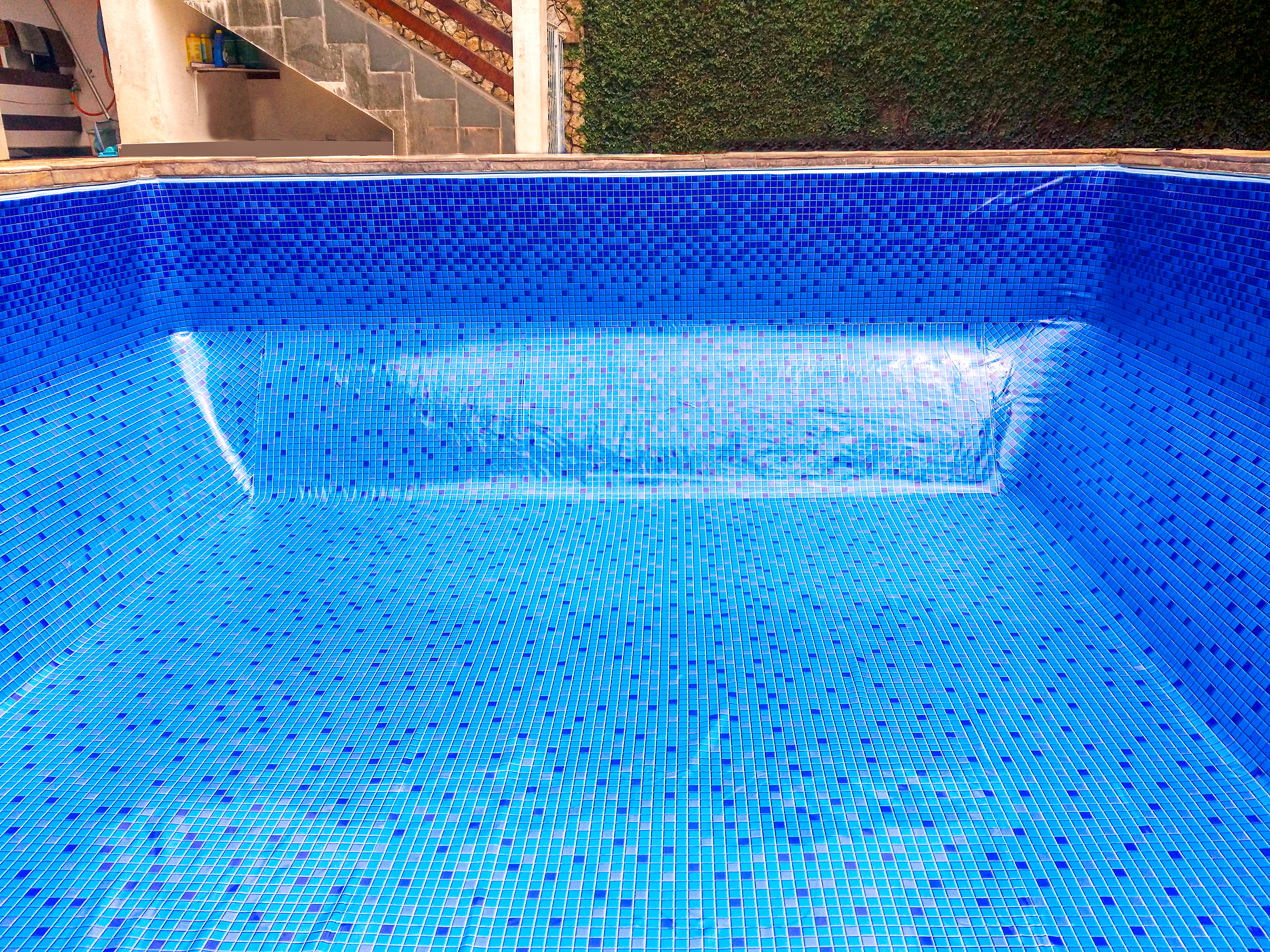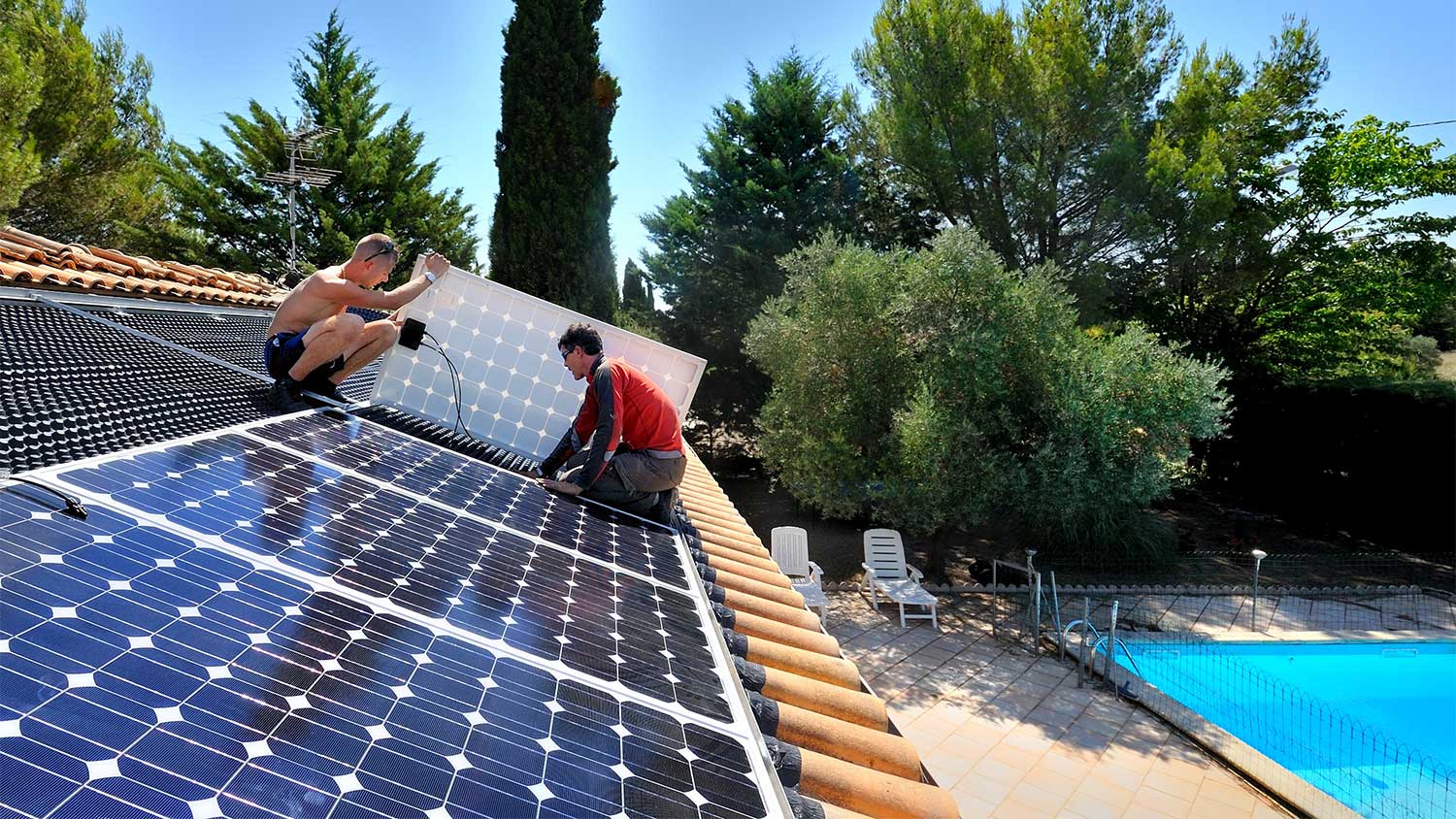
The cost of pool liner replacement in Columbus depends on the size and shape of your pool, as well as the liner material and type. Here’s how the costs break down.
Tap into the power of the sun with these solar pool heater perks


Solar pool heaters cost between $1,600–$5,200 on average
A solar pool heater will pay for itself in just 2–7 years
Low operational costs and maintenance make solar pool heaters easy to maintain
Solar heaters use renewable energy that helps reduce CO2 emissions
Summer is gone, and with it so are your pool parties, right? Not so fast! Though those warm, sunny days are becoming a (temporary) thing of the past, that doesn’t mean that you can’t still enjoy swimming in your pool. And what better way to indulge in a little unseasonal pool-time fun than to have a solar pool heater on hand? Here are six benefits to having a solar pool heater.
According to the Centers for Disease Control and Prevention (CDC), 15% of adults and 36% of those between ages 7 and 17 go for a swim six or more times yearly. Much of that swimming takes place in the summer, with the average pool owner only able to reap the benefits of a relaxing swim for three or four months a year. You can extend your swim season by a few months by simply installing a solar heater to your pool.

Cranking up the heat on your pool doesn't mean you also have to crank up your energy use. Solar heaters harness the power of sunshine to avoid rising energy costs. While the upfront costs for a solar heater can fall anywhere between $1,600 to $5,200 to buy and install, your sleek, new solar pool heater should pay for itself in two to seven years. Prices depend largely on the size of your pool and the average temperatures of your region.
Solar heaters save energy in two ways:
1. Solar heat pumps use solar energy to heat your pool: Energy Saver states that solar heaters utilize the sun’s energy through a solar collector device, which circulates the water in your pool and increases the water temperature via solar heat.
2. Solar heat pumps also use solar energy to cool your pool: In the summer, you can also use your heat pump to cool the pool through the same circulation process at night.
Bonus tip: You can further reduce energy use by putting a solar blanket over your pool at night to prevent heat loss.
Since solar heaters save energy, you’re also investing in a more environmentally friendly pool heater. Solar energy is one of the cleanest forms of energy because it doesn’t use fossil fuels like gas or oil and doesn’t produce emissions that can hurt the planet, such as carbon dioxide (C02). Instead, solar energy uses what’s sent down to the earth from the sun’s radiation to power your solar pool heating system.
In fact, solar electricity in the U.S. in just the first two quarters of 2021 offset over 122 million metric tons of CO2 emissions, according to a U.S. Solar Market Insight Report.
If you’ve ever tried heating your swimming pool using a traditional pool heater, then you know just how costly it can be to keep your pool warm in cooler weather. Solar pool heaters greatly reduce your heating costs while also requiring minimal operating expenses.
Data conducted by Pool Research shows that natural gas heaters require an average of $1,400 to $4,800 per year to heat your pool, while solar heaters require only $0 to $120 yearly to run. Since your heater doesn’t require fossil fuels or electricity, you’re essentially paying only for the product itself while gaining the benefits of that solar radiation.
Because solar heaters run cleanly and effectively, they require minimal maintenance. Also, a solar heater typically lasts 15 to 20 years or more. Compare that to gas pool heaters, which last five years or more, as per Energy.gov. However, this doesn't mean that you should put off calling a local pro for a yearly inspection. It just means that you’re less likely to need maintenance on your heater.
And, like with any pool heater, you will need to check the filter cartridge monthly and replace the filter every six to 12 months. If your pool gets lots of use, there are trees above it, or you don’t have a cover for it when not in use, you may have to change the filter more frequently.
Gone are the days of noisy pool heaters. With a solar heater, you’ll experience some of the quietest heating technology on the market for pools. That means no loud hum as you relax in the water or catch a tan on the side.
From average costs to expert advice, get all the answers you need to get your job done.

The cost of pool liner replacement in Columbus depends on the size and shape of your pool, as well as the liner material and type. Here’s how the costs break down.

Spool pool costs vary based on the design and materials, but they’re relatively affordable and space-saving compared to traditional pools. Here’s a cost breakdown.

If you’ve been considering installing a new pool in the Buckeye State, this guide will help you understand inground pool costs in Columbus.

Hiring the right pro to build your pool is critical for a successful project. Find out what questions to ask pool builders to find the right match.

Elevate your swimming experience with a DIY pool heater. This guide includes four methods for using the sun's energy to warm your water.

Knowing how much salt to add to a pool will prepare it for use on a hot day. Use these calculations to keep your pool salt levels in the right spot.